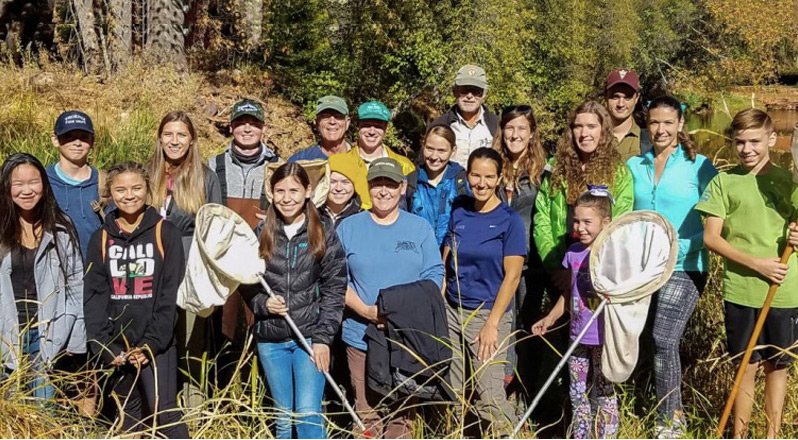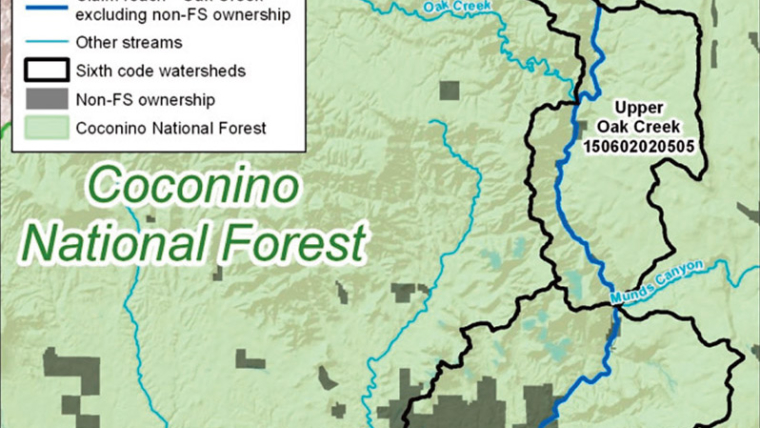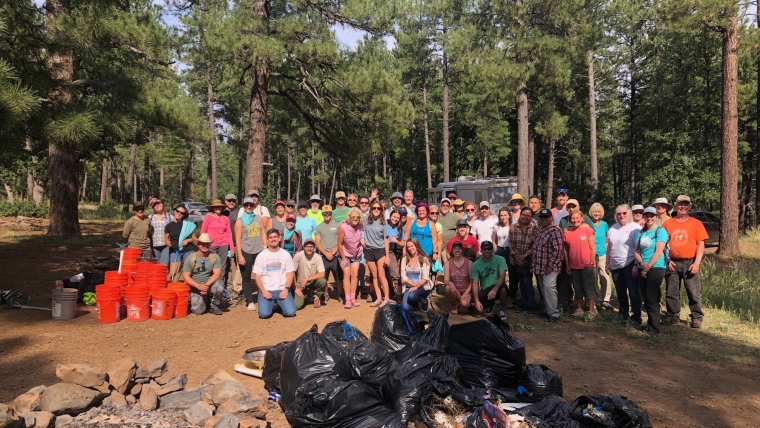Soil erosion is impacting the ecological health of Oak Creek. When excessive sediment settles on the stream bottom it suffocates aquatic insects (a.k.a. benthic macroinvertebrates) that are key food prey items for fish and other wildlife. Sediment also serves as a reservoir for fecal contaminants (E. coli bacteria). Sedimentation occurs from erosion, which can be contributed to over-use of swimming areas along Oak Creek (stream bank erosion) and from social trails. Our 2017 and 2018 macroinvertebrate surveys worked to provide baseline ecological data needed for planning successful watershed and stream restoration actions.
The project objective was to better understand the impacts of sedimentation on macroinvertebrate diversity and richness in Oak Creek.
Oak Creek Watershed Council mobilized volunteers and provided an opportunity to participate in an ecological study with land management applications. Expert aquatic ecologist, Dr. Larry Stevens, trained OCWC staff and volunteers in stream ecology methods. An array of volunteers participated from Northern Arizona University, including students from NAU’s Wildlife Society, in addition to local ecologists, residents, and youth. Together, we followed sound stream sampling procedure and collected sediment samples, water quality samples, and macrovertebrate samples in three stream habitat types (Ripple, Run, Pool).
Participants then used a macroinvertebrate key to identify specimens collected for each site. At the end of each day, we had a lengthy discussion about what observations were made of sediment presence, stream habitat type, and biodiversity of aquatic insects. For additional information please read Dr. Larry Stevens report on our findings HERE.
Supported by grants from:

Arizona Community Foundation Sedona




